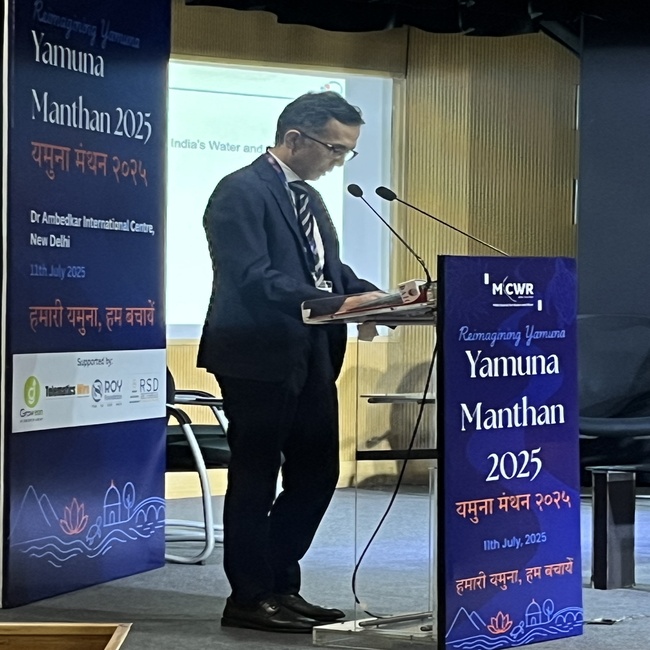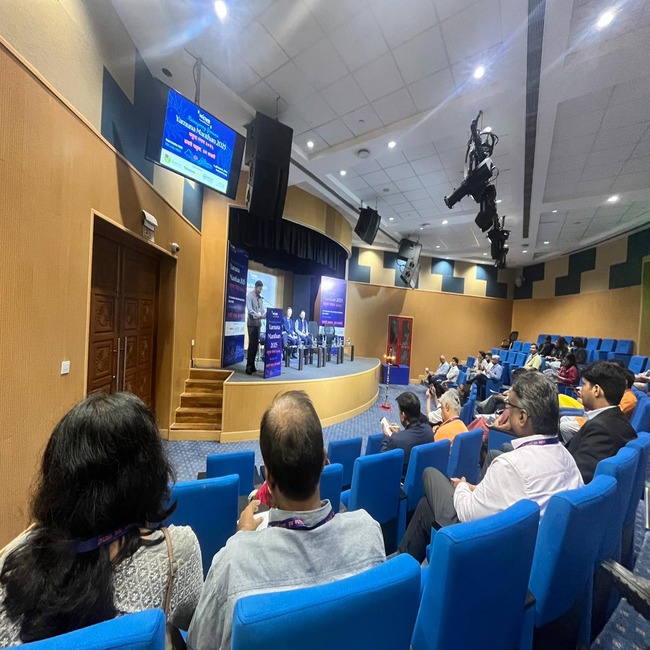Teachers attend YAMUNA MANTHAN'25, an orientation for conservation
On 11 July 2025, our teachers, Ms Rajika Sorout and Ms Amrita Joshi represented The Indian School at Yamuna Manthan 2025, a significant dialogue on river conservation and sustainable development of the River Yamuna which was organised at Dr Ambedkar International Centre, New Delhi, by the MAS Council for Water and River (MCWR). The event brought together experts, policymakers and educators to find solutions for e-flow restoration, floodplain development, and community action.
The session underscored the critical issue of reduced environmental flow (e-flow) in the Yamuna. Factors such as excessive diversion of water for irrigation, deforestation, untreated sewage, urbanisation, an outdated 1994 water sharing agreement, were identified as major contributors to the poor health of the river.
Keynote speakers included Dr Anshuman (TERI), Dr Balakrishna Pisupati (UNEP India), and Shri Akito Takahashi (JICA India), among others. Theatre performances and panel discussions reinforced the urgent need for ecological awareness and river stewardship.
A major highlight was the introduction of the Maa Yamuna Swachhta Abhiyan (MYSA) – a school-focused initiative encouraging student participation in awareness drives, eco-clubs, and clean river campaigns.
The speakers emphasised the pivotal role of schools in advancing this programme. Engaging students through eco-clubs and Yamuna-centric activities is essential to fostering environmental stewardship. Schools are encouraged to actively participate in the MYSA initiative to support the city-wide rejuvenation of the Yamuna River. A variety of awareness campaigns, tree plantation drives, and educational excursions to biodiversity parks can be organised to deepen students’ understanding and involvement.
Yamuna Manthan 2025 was a deeply enriching and timely initiative that connected scientific understanding with practical, community-driven solutions for river rejuvenation. As educators, it is our responsibility to take this momentum forward and empower our students to become active changemakers in environmental conservation, beginning with our own Yamuna.














